 When General Pervaiz Musharraf ousted the Nawaz Sharif Government and took over Pakistan in 1999, most of those in born towards the end of the Zia-ul-haq era and having only seen the game of musical chairs of power between Nawaz Sharif and Benazir Bhutto since gaining consciousness, were relieved, if not joyous, to see the notoriously corrupt politicians go into exile and pave way for a more disciplined military regime.
When General Pervaiz Musharraf ousted the Nawaz Sharif Government and took over Pakistan in 1999, most of those in born towards the end of the Zia-ul-haq era and having only seen the game of musical chairs of power between Nawaz Sharif and Benazir Bhutto since gaining consciousness, were relieved, if not joyous, to see the notoriously corrupt politicians go into exile and pave way for a more disciplined military regime.
Seven years on we are wiser and weary.
Musharraf has over-stayed his welcome. We never had any faith in the politicians in the first place, now by becoming disillusioned with the military regime we join the old and the wise in their cynicism of all forms of top-down power. Most have resigned to the fact that in politics faces change yet the ground realities remain the same.
As a student in Karachi, in the 1990s, we had lived through the time when there was not a single week of the month that went without a strike in the city. Those were the days when extra-judicial killings were being carried out against young activist of MQM (or its dissident factions) by the law enforcement agencies. The academic cycle was disrupted by low attendance due to frequent strikes and violent protests that paralyzed major parts of the city. Since the state television, PTV, remained in denial about the law and order situation, we often had to rely on word-of-mouth news or call up the school administration and then place our bets whether it was safe enough to venture outside. Instead of fire drills, we had teachers advise us to duck under the tables and stay low whenever we heard gunshots.
Those older than us who were in universities at the time, particularly public-sector educational institutes, were at the center-fold of student politics – wantingly or unwantingly. The student bodies were highly politicized, as the unions demanded some sort of affiliations in exchange for privileges and protection. The destructive and disruptive student unions often clashed amongst themselves and deliberately delayed examinations so much so that entire batches did not graduate on time. It was not surprisingly to hear of a simple four-year degree getting prolonged to five or six years.
Through the 1990s almost everyone we knew someone or the other who lost family members in clashes between different political activists or in extra-judicial killings by law enforcement agencies in fake encounters. Some people simply went missing in such encounters. Some families put in all their resources and efforts to send their kids abroad or out of the city, gripped with the fear that they would become involved in student or street politics if they stayed in Karachi. Those who could afford private education and lived in a non-political locality were somewhat sheltered; for the rest there was little escape.
Consequently, most of my generation grew up abhorring any sort of activism. The old and the wise regard student-politics as a way to corrupt impressionable young minds and destroy their careers. Not surprisingly, even social activism or community service somehow never gained popular momentum here.
Thus, when Musharaf took control of the country in 1999, there was a bit of noise from some quarters of the press and the intelligentsia over the murder of democracy. Most, however, held their breath in cautious optimism. The argument that un-constitutional removal of an elected prime minister fell under the category of high treason was meaningless to us. After all, we figured, the constitution is not kosher. It’s a man-made document written nine years after independence, changed thrice during our six-decade history, and held in abeyance numerous times.
Naively, we hailed Musharraf. We reasoned, at least Musharraf is more presentable than the industrialist Sharif or the prodigal feudal Ms. Bhutto, and has no-nonesense attitude as opposed to their histrionics. The least the Chief of army Staff would be able to do is maintain peace in the country. Hopefully sanity will prevail. The politicians and their corrupt plundering, blame-storming ways were the only version of democracy we knew. Only the military can save us from ourselves, we opined. There is no alternative. After all, anything done out of an act of necessity is beyond good or evil. So, we wondered…what’s the brouhaha over the murder of democracy, when the effective choice is nil?
And almost like clockwork, as if to appease his critics Musharraf’s rule apparently brought a time of economic prosperity for the country. The GDP growth is 8% according to official figures. The Foreign Direct Investment is increasing. Luckily for him, since 9/11 happened and a lot more remittance has started pouring in. Currently, the average remittance for the last 3-4 years is $4 billion a year, as compared to $1.5 billion in the 1990s1. When Nawaz Sahrif left office Pakistan’s external debt was 53 per cent of the GDP. It is now 28 per cent of the GDP2. Foreign exchange reserves increased from $0.5 billion in 1999 to $13 billion3. The Karachi Stock Exchange was dubbed the fastest growing in the world.
How much of this was sheer luck? How much of this prosperity is the benevolence of Big Brother? How much of this actually trickled down? And for all the talk of sustainable development how long before our fortunes reverse?
Interestingly, after coming into power President Pervez Musharraf emphasized that students should not get involved in politics and political parties should stay away from educational institutions4. The message from Musharraf was clear – students have no business in politics. Well, now that we think about it Mr. President, neither does the military.
The question is who does have a role? Forget about the power vacuum now, what will become of the country in the years to come?
65% of our population of 168 billion is below the age of 25 and apathetic. It is neither moderate nor enlightened – it is indifferent and apathetic. The youth has its pre-occupations ranging from substance abuse, sports, music, dance parties, online social networking, computer games, text messaging and fashion to religion. Activism of any color, size or shape is not one of them. We certainly don’t have any succession plans or institutions, or any sort of a platform for those will take an active role in public sphere. The chances of current education system producing good citizens groomed for participating in public sphere is very low.
The entire education system at the primary and secondary levels is based on rote learning. The textbook version of history being taught at the primary and secondary levels is completely purged of any political intonations. Those who do manage to make it out of the education system with their creativity and critical thinking intact; are lured by greener pastures. 9/11 did dampen and reverse brain drain to an extent. Nevertheless, even those who explicitly express their intent to ‘stay and serve the country’ often get disillusioned with the state of affairs and fly away when opportunity beckons.
The lower stratum of the society is pre-occupied with making the ends meet, whichever way it can. In the middle to upper strata we mass-manufacture engineers, computer scientist, doctors and management hacks, as these are the only acceptable, employable professions. A few first, second or third generation entrepreneurs crop up here and there. Disciplines like social sciences are avoided. Public policy is unheard of. Philosophers, thinkers, writers, journalists and social scientists are considered superfluous. With the recent boom in media, pseudo-intellectuals and television celebrities are aplenty.
For a young person from a non-political family, aspiring a career in politics, breaking-in is difficult. The political parties are leader-centric rather than ideology or principle-centric. Often the young entrants have to align themselves with one party or other – the very people who they want to replace. There is no dearth of young and faithful sycophantic chamcha-cum-sidekicks with no independent thought. Mostly the power is passed on to sons and daughters of politicians – their competence is a separate issue altogether. New working class blood rarely makes it to the decision-making arena and if they do it’s a typical case of power high. The politicians are predictable, but when someone from the working class comes with the explicit intent of doing ‘good’, we shudder. But even those with altruistic intentions and immunity against power, are too remotely located or disconnected to fathom the problems plaguing the country on an aggregate level. They don’t realize the priorities and the intensity of these problems. Take for example the problem of allocation of resources to the provinces. Sindh wants it to be based on revenues, Punjab on population, Baluchistan on size and NWFP, well…the level of poverty. The issue is framed as a zero sum game so that the politicians who are so deeply entrenched in their own constituencies are forced to pick sides.
There is no lesson learned from history, inequity and its repercussions are conveniently forgotten. And if there is someone doing pro bono work, challenging the status quo, over-stepping the social order, he or she is discouraged by emphasizing on magnitude of work required and the futility of it all. ‘You are not a bat, hanging upside down, holding the weight of the world on your head,’ they are told. Since such intrinsically motivated people are rare and such moments infrequent for our consciousness, they remain fragmented across time and space. There is no platform for such like-minded people to converge and keep the motivation going.
For majority of the youth it makes no substantive difference who takes power. We go scurrying about our lives. In the lower to middle stratum when something does enrage the people the only course of action known is street protests. And when a mob gathers, the mob mentality takes over. Burning of tires and destruction of public property is simply collateral damage. Peaceful protests don’t get a lot of coverage anyways. The only way to be heard or just vent out is street protests. And for a distant observer, one can never dismiss the possibility of vested political interests sponsoring such protests. There is no real way to gauge popular dissent or approval of the masses.
So we remain a quasi-democracy where the rich and the powerful are more than equal. The poor lack the education and the cultural capital required to succeed in this quagmire of politics. The educated have the cultural capital but lack the will. The politicians, et al have all of the above but lack ethics and operate without a moral compass.
Any efforts for a better future would be useless if it fails to take the silent majority in the fold. And before we go on to ‘higher ideals’ such as democracy; physiological needs of the masses have to be met first. Before we go towards a participative democracy we need to create an environment conducive for participation. We need to go beyond boycott of goods or burning tires. We need to build collective consciousness rather than collective amnesia. We need to make the people understand that they will be heard. That they are not simply cogs in the larger scheme of things, but citizens whose rights will be safeguarded.
We need to ask ourselves, is it something inherent in our cultural dimensions that need to be fine-tuned before we move towards participative democracy? Will the theory-X mentality, that everyone else is lazy, cheat and incompetent; ever let us believe in a truly participative democracy? Will we ever be able to do away with subservient, colonial mentality? Do we need to change our tolerance for large power distance before we start believing in participative democracy? If there has to be a change, does it have to be violent? Can a few good men and women make a difference? Can we go from being activist-driven to being problem driven in our approach? What price are we willing to pay for a better system?
Could it be that there are no alternatives to the current options – the modern pseudo authoritarian regime or the down-right dirty politics endowed from generation to generation?
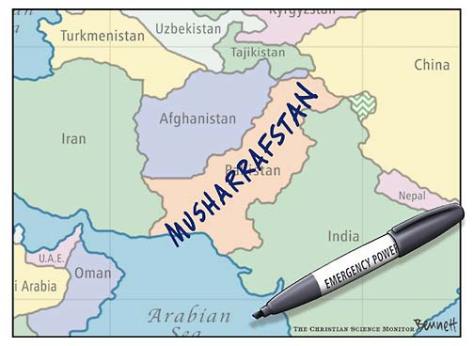
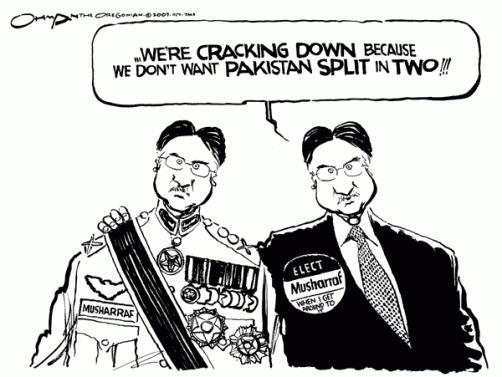
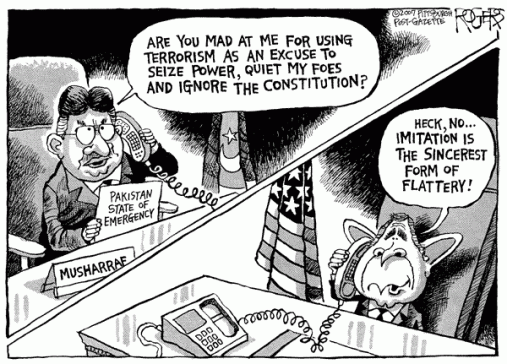
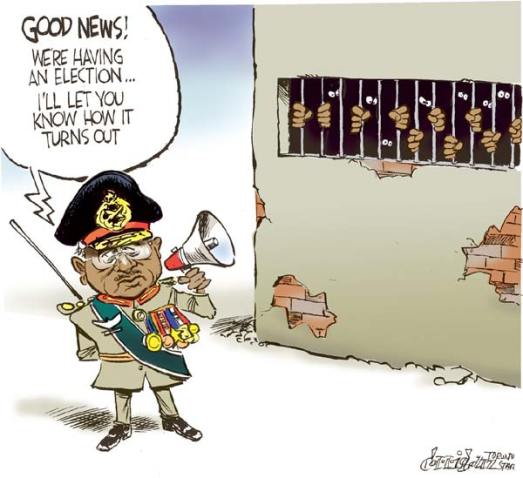
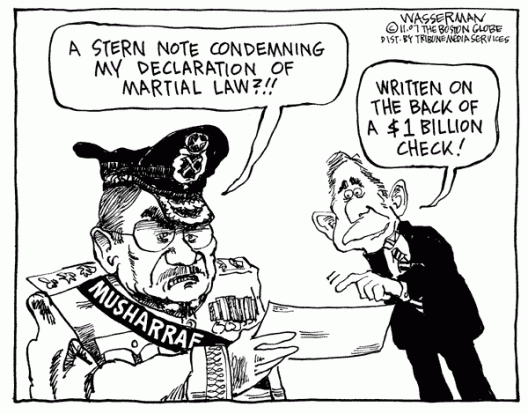
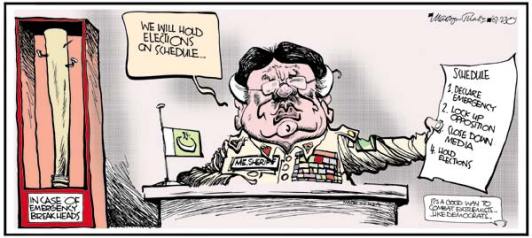
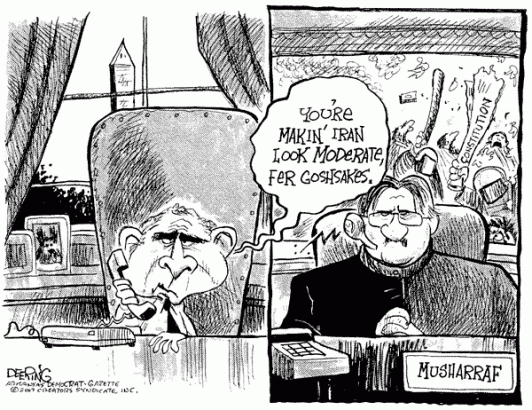
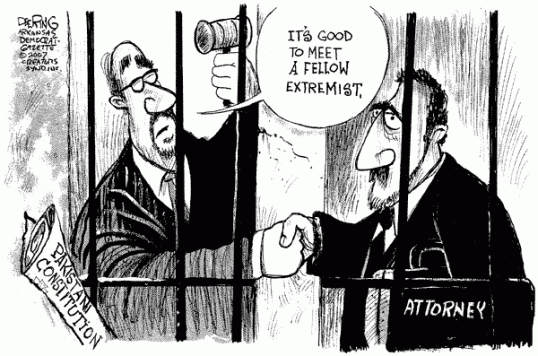
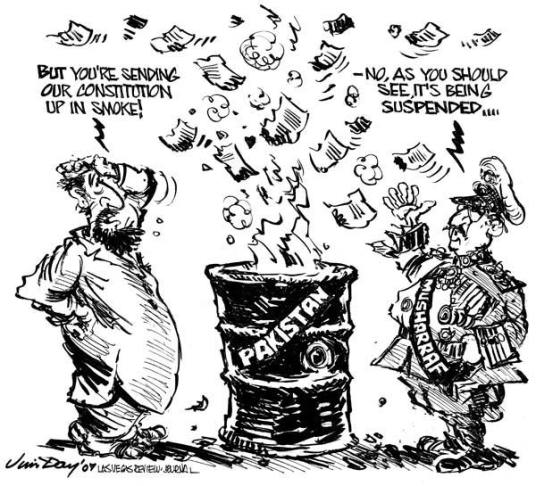
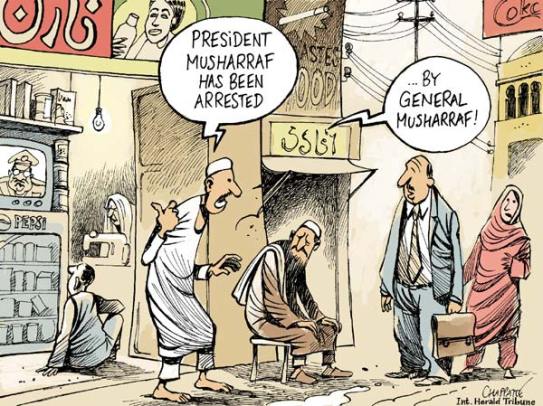

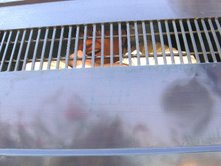


You must be logged in to post a comment.